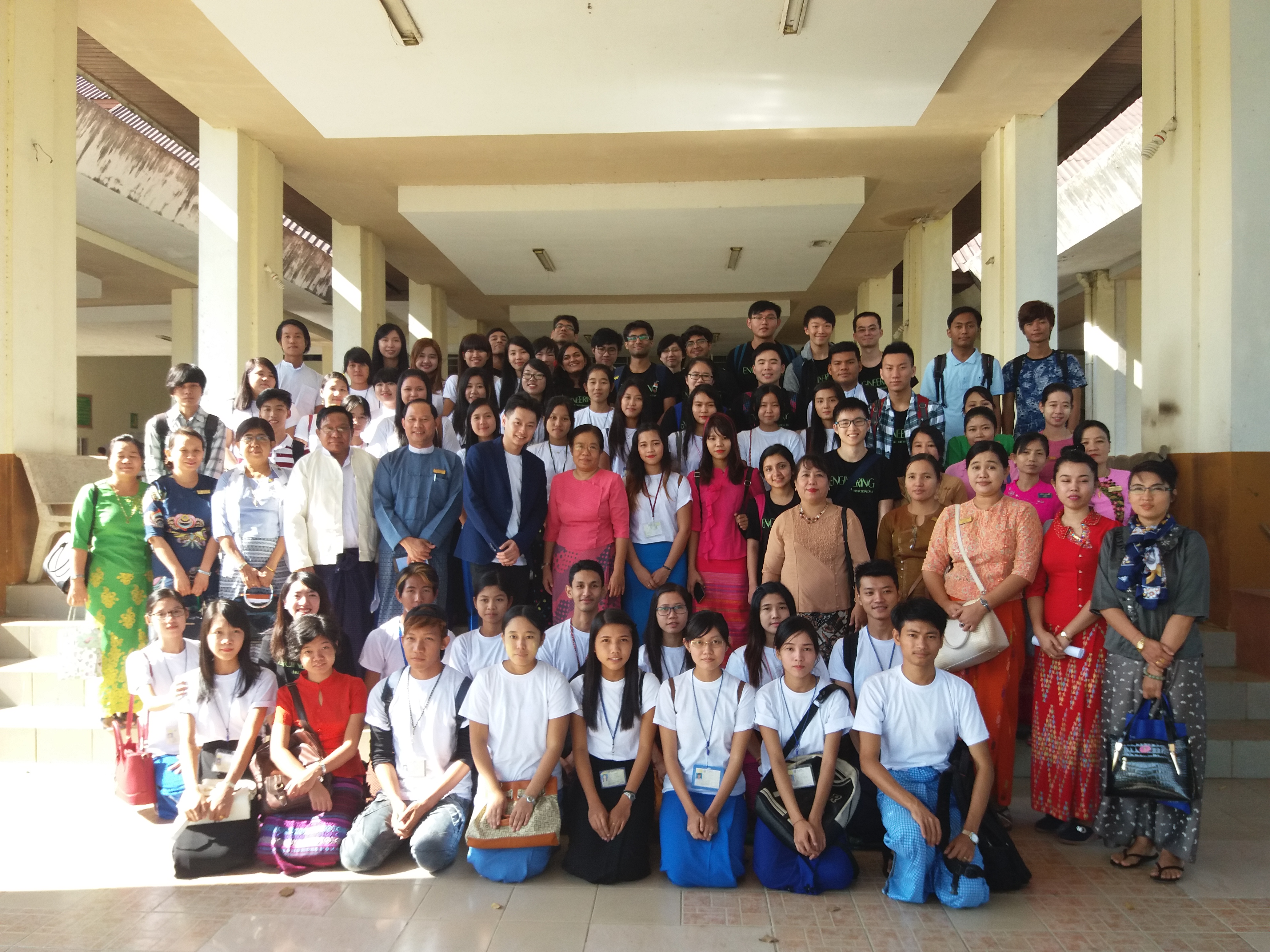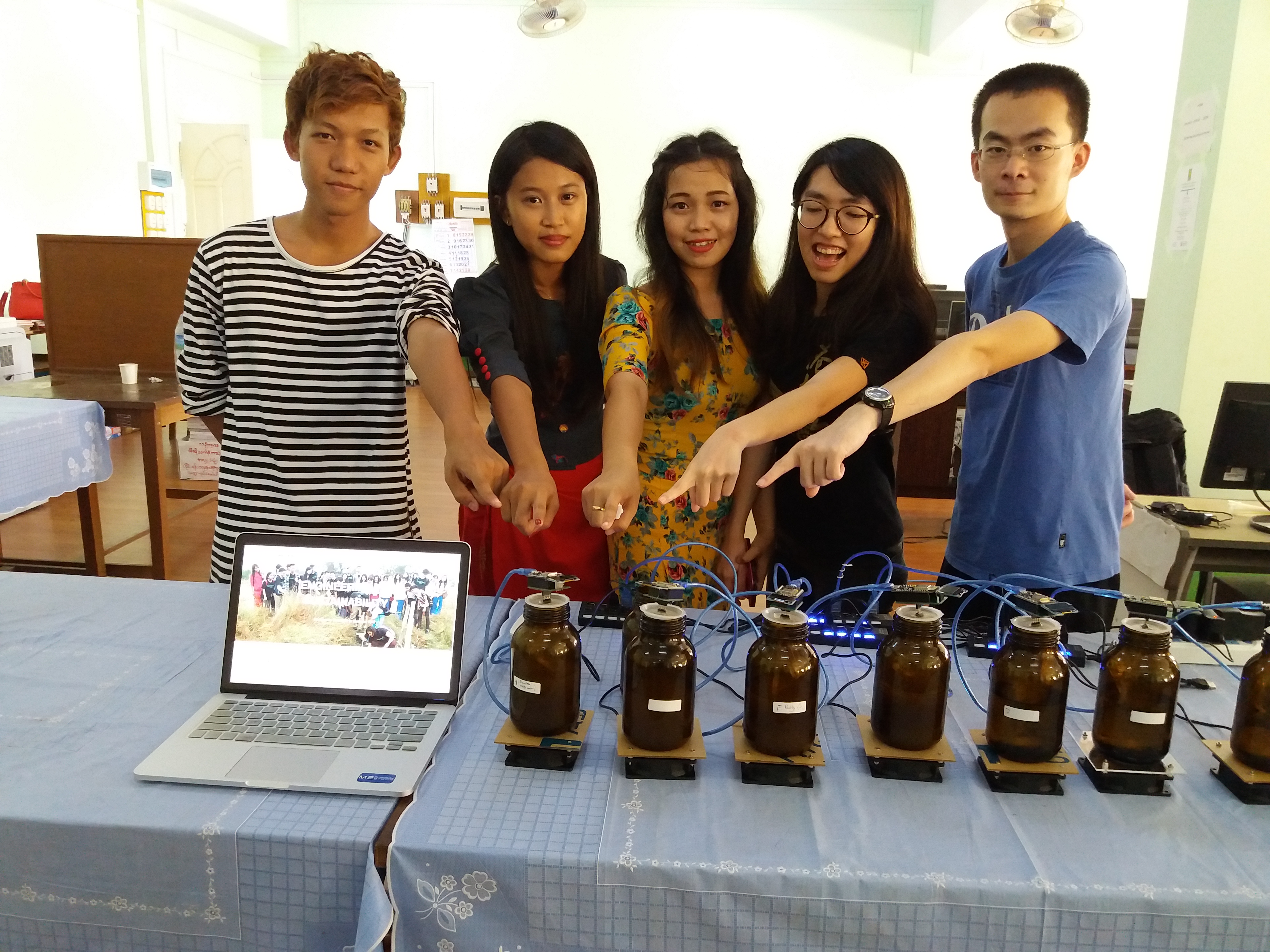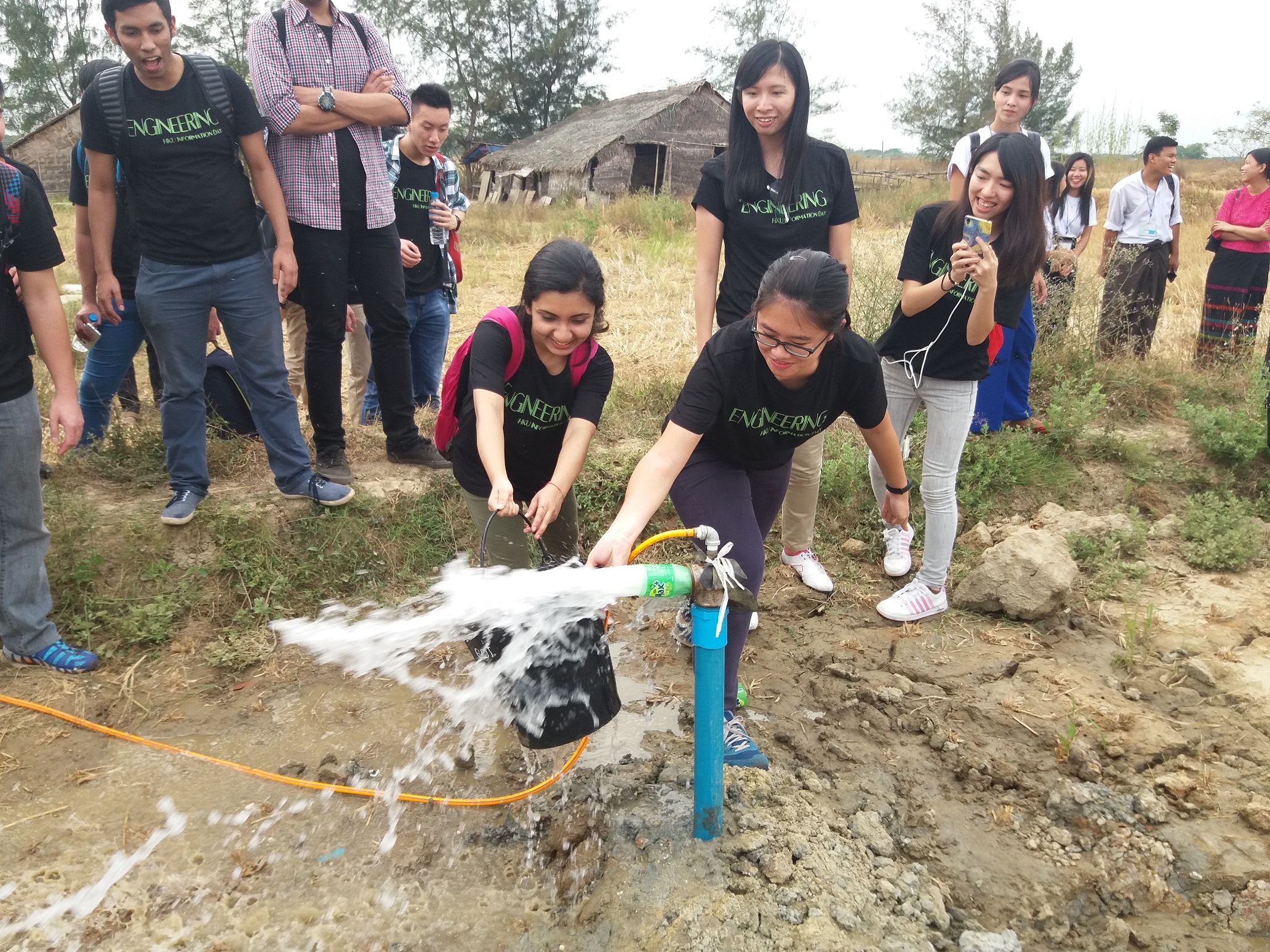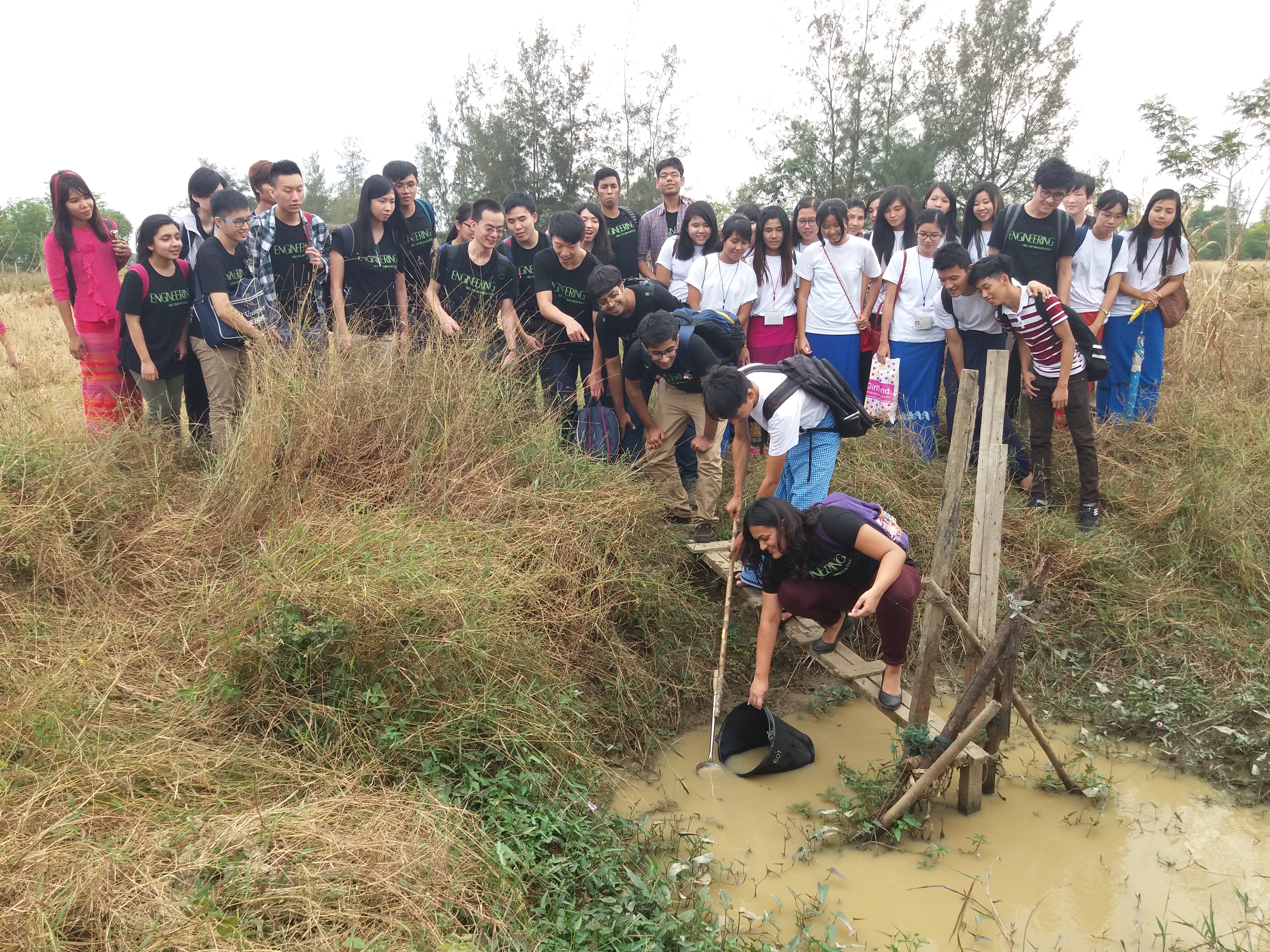The Thoughtful Stitching: Wastewater Treatment in Myanmar
By Vienne Lin
“Teachers have no longer been a source of knowledge. They are facilitators. They need to help students learn more than the teachers actually know,” Dr. C. K. Chui said matter-of-factly.
Dedicated to a variety of internationalisation projects, Dr. C. K. Chui, one of our CoP – ITL’s co-leaders, has undertaken a cross-cultural, cross-disciplinary and cross-border experiential learning project on wastewater treatment. As a departure from the traditional engineering curriculum which attaches much weight to technical knowledge, this project aims to provide students at HKU with opportunities to develop hands-on experience with real-world impact and to sharpen individual professional skills, including lifelong learning skills and teamwork skills for global citizenship. Available for students within the Faculty of Engineering, this project is partnered with the Faculty of Science at the Dagon University (DU), Myanmar.
Diversity as Challenge and Opportunity
Challenging as it is, a group of young future engineers with mixed backgrounds, be they Computer Science, Computer Engineering, Biomedical Engineering, Civil Engineering, Electrical Engineering or Environmental Engineering, comes together to solidify their own disciplinary and interdisciplinary learning and to help their local and overseas peers realise their potential to absorb information through the application of “knowledge exchange workshops”. Students were cleanly divided into groups: two HKU engineering students were paired up with four to five DU science students on site. Such meticulous grouping in effect smoothed over differences and offered a culturally and disciplinarily rich interchange to students of both sides. All students have braved smelly fields and farms to collect agricultural, industrial and underground wastewater samples. Teamwork prevailed!
Learning as Lifework
Lifelong learning skills can come in handy for future endeavours in life beyond school. According to a survey of the project, an overwhelming majority of students agreed that their lifelong learning skills were enhanced. Three salient skills were mentioned in particular. Time management speaks for itself. Although students were snowed under various deadlines, such as preparing run-downs, drafts, presentations, they were able to design and develop an efficient study plan under tight time constraints. Second comes effective study skills. Students have learnt how to find a right expert and ask a right question to advance their learning goals. The third goes to negotiation skills. In a diverse team, students has come to understand that each individual has a role to play, fulfilling separate but complementary needs.
Beyond Borders
Environmental sustainability as one key global issue was chosen as a site of investigation. To solve a problem, students have to know what the problem is. Students were proud of themselves who did not just sit comfortably in classroom, but capitalised on such experiential learning to improve lives of the citizens. Students were also able to identify other major urban problems, such as lack of clean food and heavy traffic jams, facing Myanmar.
Acknowledgements
The feature story draws on an interview with Dr. C. K. Chui who generously shared with us his experiences and insights, and we hope we have done justice to the wisdom of his practice in relation to internationalisation of teaching and learning.
Cite this item
Lin, V. (2018, January). The thoughtful stitching: Wastewater treatment in Myanmar. CoP – ITL Buzz, 1. Retrieved from https://www.cetl.hku.hk/cop-itl/whats-happening/enewsletters/issue-01/the-thoughtful-stitching/.






